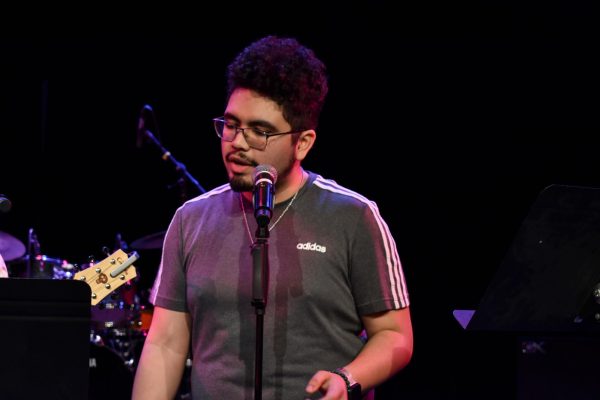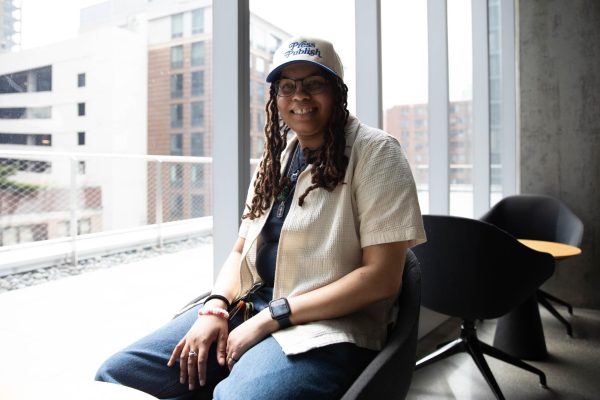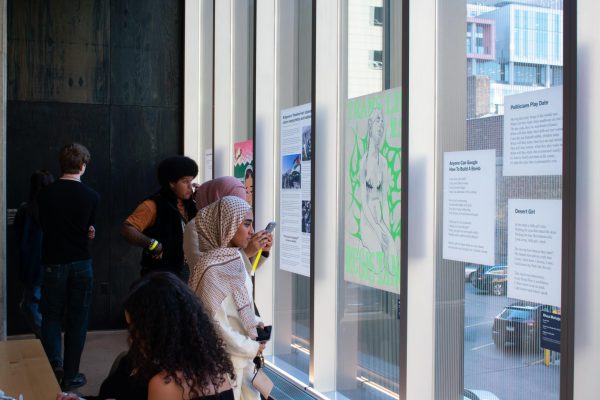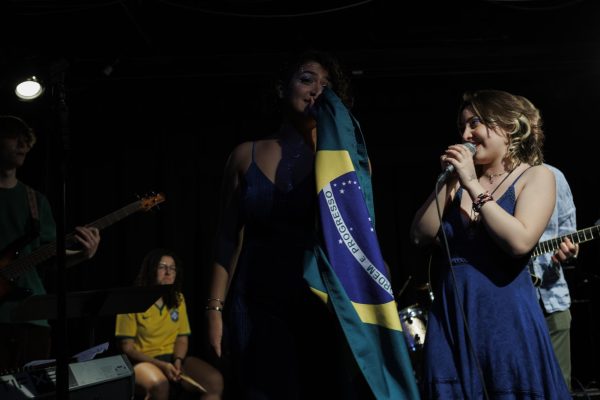Hollywood legend to grace Columbia with her presence
October 19, 1998
Steve Stanis
Staff Writer
After 60 years in show business, acclaimed stage and screen actress Betty Garrett is going back to school. Garrett will be performing a benefit concert on Monday, October 19 at Columbia’s Getz Theater, 72 E. 11th Street. The funds raised from “An Evening with Betty Garrett” will go to the newly founded Betty Garrett Musical Theater Scholarship for Columbia students.
Garrett has worked with a list of names like few others have. She was Frank Sinatra’s love interest in the musicals “On the Town” and “Take Me Out to the Ballgame.” She’s danced with Martha Graham and Gene Kelly. She was Archie Bunker’s neighbor and Laverne and Shirley’s landlady. Garrett has also appeared on stage and screen with Danny Kaye, Jack Lemmon, Mickey Rooney, Carol Channing, Red Skelton, and Esther Williams, among others.
Garrett’s performance will be based on her recently published autobiography “Betty Garrett and Other Songs: A Life on Stage and Screen.” The autobiography was co-written by Chicago Sun-Times columnist Ron Rapoport, who was asked to help set up the performance for Columbia.
“Since I’ve gone my whole life on scholarships, I think it’s a wonderful thing for kids to have a scholarship and be able to do things they ordinarily wouldn’t be able to do,” said Garrett. She had never heard of Columbia prior to this, but after seeing the campus and talking with students and instructors, she was impressed by what she saw. “It just looks like a marvelous college,” she said. Garrett felt honored by Columbia’s decision to name the scholarship after her.
“I don’t think the whole country pays enough attention to the arts. We’re way behind all the European countries who have national theaters and national ballet companies and national symphonies,” said Garrett. “It’s very hard for the arts to raise money.”
Being a founder of a small Los Angeles theater company, Garrett has struggled to raise money and put on shows. She quotes Agnes DeMille when speaking of the arts: “It is food for the soul. You’d better feed yourself or you’ll get dull.”
Garrett is used to the struggle. Her life has been filled with ups and downs and she has always been a fighter. Her late husband, Larry Parks, testified before the House Un-American Activities Committee during the McCarthy era and was blacklisted from Hollywood. Their marriage continued until 1975, when Parks died of a heart attack at age 60. Through everything, Garrett has been known to keep an optimistic attitude. She attributes this to her mother, who raised Garrett alone and moved to New York so that her daughter could take a scholarship to study dance under Martha Graham. ” She was a very lady-like, dignified person which I’ve never been able to achieve, but she always did have an optimistic view,” she said.
Her mother helped direct her into theater. “I think she knew from an early age that I should go on the stage. Either I should be an actress or a dancer and she guided me in that direction, but I was always acting as a kid,” Garrett recalls.
Garrett began her stage career as a dancer but soon realized that acting was her true calling. “Dancing is the hardest and most short-lived profession you could possibly choose. I realized I was never going to be a great dancer, however I’ve never stopped dancing. I love dancing. I got into acting and realized that’s where I was the best,” Garrett said.
Throughout her career she has continued to dance on stage and screen with numerous people. “Gene Kelly was really tops. I never got to dance with Astaire. I wish I did something with him, but Gene was certainly the greatest.”
Garrett’s career has always been on the pulse of the industry. She won a Donaldson (the predecessor of the Tony) on Broadway, and was with MGM in its golden days. When she starred in “All in the Family,” and “Laverne and Shirley,” both were number one shows on number one networks. Garrett has said that she was very lucky to be a part of all this.
“You can be absolutely brilliant, but if you’re in something that’s not big time or is not a big hit itself, sometimes it doesn’t mean anything. But, you can have a smaller part in a big hit and that’s more important to your career really in the end. I don’t know how I lucked out with that. It just happened,” Garrett said.
Garrett’s autobiography is filled with stories and reflections on her career. Looking back at her career, Garrett said she would like to revive the play, “Spoon River,” that was developed with her theater group in Los Angeles.
“We had the idea that we would have a four week concert tour [on Broadway]. We got rave reviews and stayed the whole season. That was so much fun because the fact we did these little poems. Each one of the four actors got to play around 20 different roles… The other show I did in Los Angeles was called ‘Quilters.’ It was about a pioneer woman coming across the country and her hardships. The one expression a woman had was quilting. Again, it was done by a small company where we each played many parts. That show was like a religious experience. At the end of the show, this tremendous quilt that took up almost three stories would be pulled up and the audience would just gasp. I never failed to cry.”
Her autobiography also includes memories of many of the people she has worked with, including Sinatra. “He was a darling. I enjoyed him so much. I didn’t see him much over the years, but he was the first person to write me after my husband died. I got this wonderful card. I’ve memorized it; it was so sweet. It said, ‘If you need anything, call,’ and then it gave a phone number which I understand was a very private number that Frank had. At the bottom it said ‘I hug you, Francis.’” Just two weeks before his death she received a birthday card from Sinatra. “I didn’t see him that often, but I really loved him,” Garrett said.
Garrett’s advice for students of the arts is to “Keep after it. Get involved so you are continuously practicing your craft. If you’re lucky, someone will see you or hear you and that will lead to other things. You have to go into it as if you would do it for nothing, which you very often have to do and if you’re not prepared to do that, go into real estate. With my theater group, things often end up costing me money, but I wouldn’t do anything else.”







